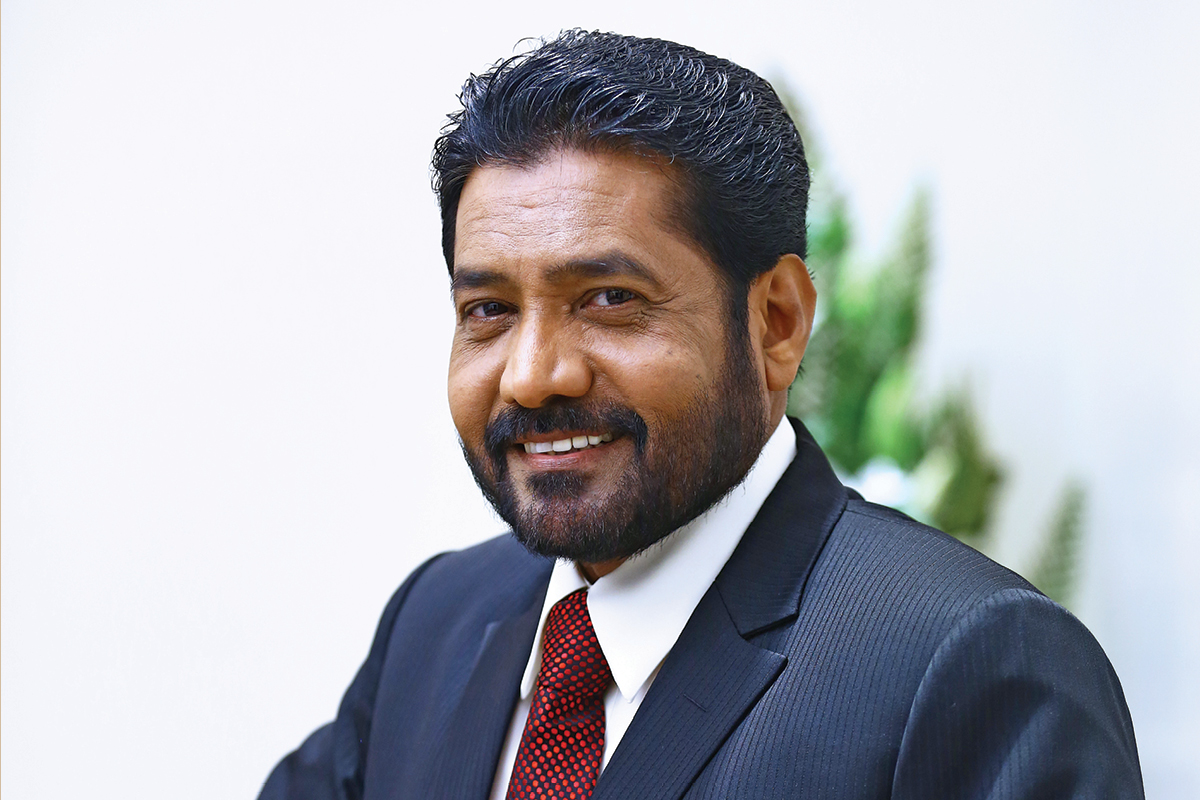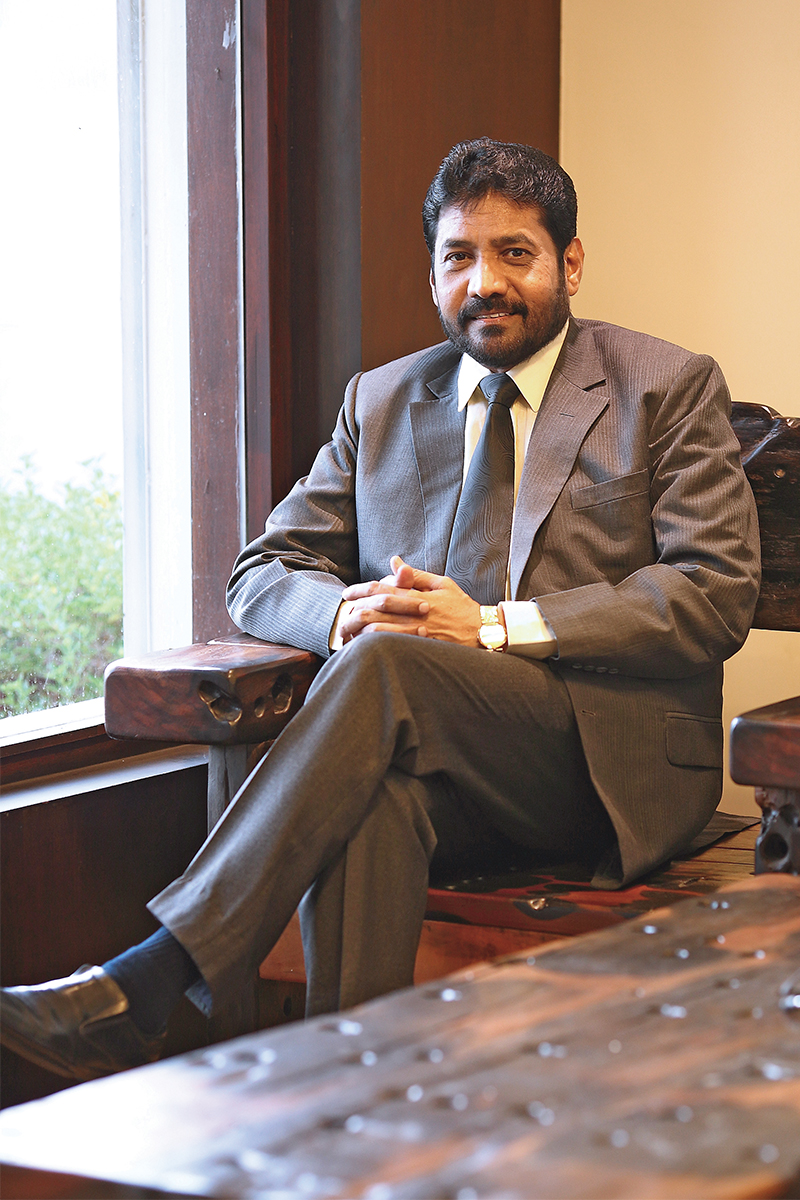Born into an agricultural family in Tamil Nadu’s Nazerath, Padmasingh Isaac Isaac had a tough childhood. His father passed away when he was just 12, and he was raised by his widowed mother. However, growing up, Padmasingh Isaac’s overwhelming sense was of his mother’s love and nurturing. His fondest childhood memories were of his mother’s cooking, which he remembers as an expression of her love.
Padmasingh Isaac was especially enchanted with the fragrance of his mother’s masala. Later in life, she shared the recipe of the spice mixes with his wife, as well as many others he had enjoyed as a child. Padmasingh Isaac then had an idea to make cooking easier for all women – to cut down on the time they spent cooking by selling his premixed spice blends, packed and ready to use. And thus began Aachi Group – a food manufacturing company that has become a household name in India, and has a presence across the world.
Right from the beginning, Aachi Group has focused on the quality and affordability of its products. As Founder, Chairman and Managing Director, Padmasingh Isaac emphasises that these are the two pillars of his company’s success. “Our motto is that our products should be affordable in price and accessible to all consumers.”
This motto has served the firm well. Padmasingh Isaac has already overseen Aachi Group’s expansion from a business operating in the Indian State of Tamil Nadu to a global company that operates in more than 60 countries. Growth for Aachi Group is now pegged at an estimated 30 per cent year-on-year.

For Padmasingh Isaac, growth and expansion into international markets remain a priority for Aachi Group, as do improvements to its manufacturing process. He states that Aachi is the first to use the cutting-edge technology, namely cold grinding technology in India. It works by enabling the products to retain the aroma, colour and inherent volatile oil in them, whereas traditionally it was all about natural drying. However, in some products a solar drying process is used to further their shelf life.
“Our products have always stood the test of time and have been accepted by international standards,” Padmasingh Isaac states. It is difficult to argue with Aachi Group’s success. In the financial year closing 2017, its turnover was INR1,000 crore, and these figures are set to double in the next two years.
“Our products have always stood the test of time and have been accepted by international standards.”
Padmasingh Isaac exudes confidence but his positive outlook doesn’t imply naivety. He is candid about the challenges he and his team will face as the company continues to grow. “In India, language provides the biggest challenge simply because there are a lot of dialects here. These language barriers means we must train our sales force, so that they understand each region better.
“Another major challenge for a Food FMCG is logistical and distribution channels. However, we have a successful formula already implemented in South India to tackle this. We adopt a horizontal deployment of practices in the North, East and Western parts of the country.”
Despite these challenges, Padmasingh Isaac remains committed to expanding Aachi Group’s reach, with plans to export to 100 countries by the end of 2019. The company is focused on delivering ethnic products that appeal to communities throughout Europe, Africa and other parts of the world.
“We have such a large range of products with our spices, blended spices, food items, ready-to-cook products, and ready-to-eat products, and we will keep developing them with an eye on global needs. For instance, we have developed 23 varieties of biryani for the global community, and 15 varieties of curry masala. We do not focus exclusively on the Indian market.”

Not that this diversity has put much pressure on Aachi Group. By Padmasingh Isaac’s reckoning, the company’s product quality, coupled with its business model, has facilitated Aachi’s ability to face these challenges in the global market.
“Even though we started in a small way, almost every year, we see a 50% increase in production capacity. Already, our products are at an international standard. This is not a problem for us, and neither is meeting the demand. Our distribution channels are so powerful because we have the right products that can reach every corner of the world.”
Ultimately, Padmasingh Isaac insists that it is the quality of its products that drives this massive success for the brand internationally. “The product quality speaks for itself. We are always focused first and foremost on the consumer.”
He also acknowledges that his spice blends have medicinal purposes that were traditionally used in the Indian community, thus they provide the customers with a wholesome experience.
On top of a commitment to quality and affordability, Aachi’s internal culture is built around nurturing and up-skilling its employees. By doing so, Padmasingh Isaac says staffs are better able to understand the company’s goals while committing to its future successes.
“The next generation of leaders are ready now. We nurture our salespeople from a grassroots level, with many moving on to become managers in the company. They know the Group’s vision. They are trained in production, logistics, finance and marketing, and they are implementing our vision successfully. We help our employees. We take care of them.”
Aachi Group’s obligation to its employees is an internal part of the company’s service to the society, says Padmasingh Isaac. So much so, he notes that showing care for employees and the company’s customers is perhaps more integral to Aachi Group’s successes than revenue and profit.
“You have to keep all your stakeholders and employees happy because that is more important than profit. They are the assets of the company. If they understand that this company is their company, then we are succeeding.”
It is easy to see why Aachi Group has thrived. With Padmasingh Isaac’s leadership, employees and suppliers remain the top focus and the success of the company is dependent upon a good relationship with them.
“The credibility of the company is important. Our brand is accepted by our suppliers. They expect credibility, and we pay great attention to them because they are partners in our progress.”


